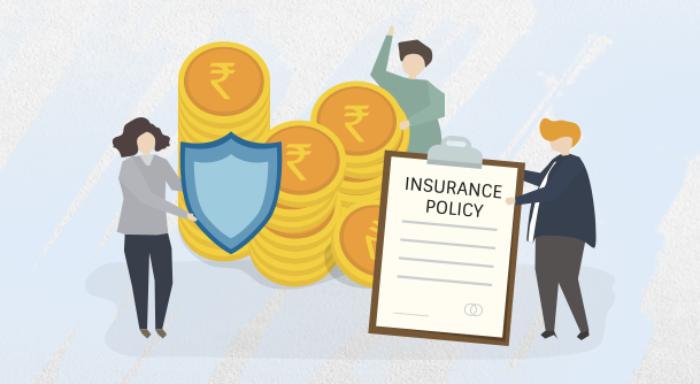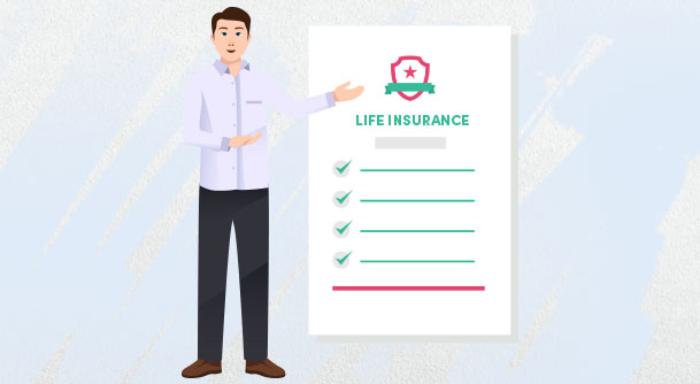Should You Get Your Own Health Insurance Too? | Edelweiss Life
Blog Title
1416 |
8/11/25 12:06 PM |
The fact that our company offers a health insurance plan gives many of us reassurance. Covering medical costs while we're at work greatly benefits many of us. However, have you ever thought about what would happen if you switched jobs, retired, or needed more funds than the policy would cover? Relying only on a company-provided health insurance plan can be risky, as it has several limitations.
You should get a personal health insurance plan if you want full protection for yourself and your family. A comprehensive health insurance plan will also secure your savings if you ever face a medical crisis.
Let's look at why it makes sense financially to add to your employer's insurance plan with personal health insurance.
Why Employer-Provided Health Insurance Isn’t Always Enough?
Your Cover Ends When You Leave the Job
The first disadvantage of employer-sponsored health insurance is that it's tied to your job. Your insurance coverage ends when you retire, quit, or have an unplanned layoff.
Imagine paying out of pocket for medical expenses when you are switching jobs. This can be quite costly. This can be even harder for those taking a career break or planning to retire early. You might be left with no insurance plan coverage when you need it the most.
Basic Coverage May Not Be Enough
Most corporate health insurance plans provide adequate coverage for standard medical expenses. However, what if you require:
Costly surgery or long-term hospitalisation?
Therapy for a serious condition like cancer or heart disease?
Care after hospitalisation, including home nursing or physical therapy?
You might need to take out loans or draw from your savings if your employer's health insurance plan coverage is minimal. Given the rising rate of medical inflation, a larger coverage level is essential in today’s world.
No Customisation Possible
Plans offered by employers are not tailored to your individual requirements. They are intended for the whole workforce. As a result, you can't always:
- Include family members like spouses or parents.
- Increase the amount covered for improved security.
- Add extra perks like critical sickness riders or maternity coverage.
As a result, the insurance provided by your company is very limited and will not be sufficient to rely on.
No Guaranteed Continuity
The terms of your company's health insurance could change at any time. Employers can opt to:
- Reduce the insured amount.
- Take out some benefits.
- Stop the policy completely.
You may have to face critical moments if you have no control over these adjustments. Because of this uncertainty, having your own health insurance coverage is crucial for long-term security.
How an Individual Health Insurance Plan Makes Sense
A Plan That Fits Your Needs
You can select from various personal health insurance policy options. This includes additional coverage, benefits for pre-existing conditions, and add-ons like critical illness protection. Regardless of your job position, a personal insurance policy guarantees you have the appropriate coverage compared to employer-provided insurance.
Uninterrupted Coverage for Life
Unlike employer-sponsored insurance, personal health coverage is with you regardless of where you work or even when you retire. It guarantees ongoing protection, so you won't have to worry about medical expenses, even if you're changing jobs or taking a break.
If you buy an individual insurance plan in your 30s, for instance, it will continue to be in effect into your 60s and beyond. This is important since health risks rise with age, necessitating constant coverage.
Higher Coverage, Greater Security
Medical care costs are rapidly increasing, and having a larger sum covered will help you handle unforeseen medical bills stress-free.
Just think about it:
- Cancer treatments may cost you ₹5–15 lakh.
- Surgery for the heart might cost you ₹10–30 lakh.
- Organ transplants may cost you between ₹20 and ₹30 lakh.
It might not be sufficient if the plan offered by your employer just provides ₹3-5 lakh. You can secure yourself from expensive treatments by purchasing an individual policy offering larger coverage limits.
Tax Benefits Under Section 80D
Not only does it give you financial stability, but a personal health insurance plan also helps you with tax benefits. You can claim deductions for the premiums you pay under Section 80D of the Income Tax Act, 1961:
- ₹25,000 annually for yourself, your spouse and your children.
- If your parents are above 60, you will receive an extra ₹50,000 deduction.
This results in a total tax reduction of up to ₹75,000, which lowers your taxable income while guaranteeing full health coverage.
Things to Keep in Mind Before Getting Additional Coverage
Here are some important factors to think about when buying an individual health insurance policy:
- Check Your Current Coverage: Determine whether your employer's plan is sufficient and note any gaps that require attention.
- Consider Family Protection: Verify that your personal plan includes coverage for your dependents.
- Compare Plans to Find the Best Fit: Find plans that include coverage for critical illness riders, hospitalisation coverage, and childcare treatments.
- Get a Policy Early: The younger you are when you buy a policy, the lower your premium will be.
- Compare Waiting Periods: Many health plans contain waiting periods for specific treatments, maternity benefits, or previous medical conditions. If necessary, pick a policy with reduced wait periods.
Final Thoughts
While a company health insurance plan is of great benefit, it won't provide you with complete protection over time. No matter where life leads you, a personal health insurance policy guarantees ongoing coverage, increased protection, and financial stability.
You are ultimately responsible for your health. With the right insurance and savings plan , your family remains protected even in difficult times. So, protect your future by purchasing personal health insurance now rather than waiting for an emergency!





